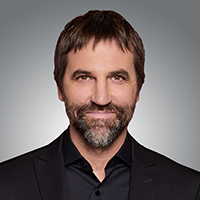On October 26, Prime Minister Justin Trudeau announced the members of the new Cabinet, following the September 20th election, which saw the Liberals form another minority government. Parliament is slated to return November 22, 2021, at which time the Government of Canada will also deliver a new Throne Speech, which will lay out the government’s plans and priorities.

Former climate activist Steven Guilbeault has been appointed the new Minister of Environment and Climate Change, with former Environment Minister Jonathan Wilkinson moving to Natural Resources.
Public Affairs group StrategyCorp wrote that “this “Double Green” approach could signal a bad cop/good cop approach to environmental policy and transformation. The COP26 international climate change conference is only days away, with these two choices the Liberals are signaling even greater ambitions on climate action.”
Minister Guilbeault previously co-founded Équiterre, an environmental organization in Quebec, worked as Director and Campaign Manager for Greenpeace, and was a Strategic Advisor at Cycle Capital Management, a private cleantech venture capital firm.
In addition to the above appointments, Bill Blair becomes Minister of Emergency Preparedness, a new portfolio that may include climate adaptation. These three appointments indicate that the Prime Minister is placing a strong focus on environmental issues in Canada.
The 26th UN Climate Change Conference of the Parties, known as COP26, will take place in Glasgow from October 31 to November 12, 2021. The summit will bring parties together, including Canada, to accelerate action towards the goals of the Paris Agreement and the UN Framework Convention on Climate Change. Some of the goals of COP26 include: Securing global net zero (a state of balance between emissions and emissions reductions) by mid-century, with countries being asked to come forward with ambitious 2030 emissions reductions targets; and protecting natural habitats by encouraging affected countries to protect and restore ecosystems.
Ahead of the summit, the United Nations Environment Programme (UNEP) released its latest Emissions Gap Report 2021, which found that many governments have not put in place policies to achieve their GHG reduction goals. The report estimates that even if countries achieve their newest round of near-term climate promises, known as Nationally Determined Contributions, the world would be on track to warm roughly 2.7 degrees Celsius by 2100, compared with pre-industrial levels.
The Liberal climate plan has several proposed commitments related to recycling, but they are focused specifically on plastics, such as achieving Zero Plastic Waste by 2030 and Investing in New Plastic Recycling Innovation; in addition to delivering on the federal government’s Climate Commitments, including achieving net zero emissions by 2050.
PPEC is currently conducting research on carbon emission data related to our broader industry, based on available information, and will be sharing that information in a future blog post.
PPEC will continue to monitor the environmental and climate change initiatives of the federal government, as well as Canada’s participation in COP26, and the upcoming federal Throne Speech.
